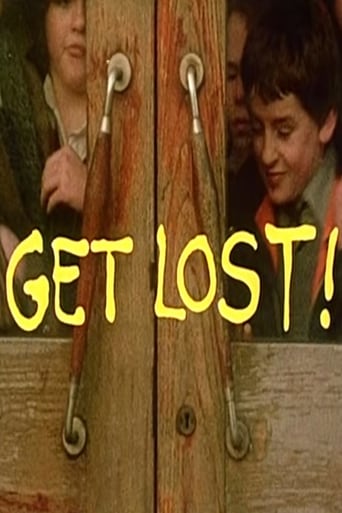Andy B
This show helped set us on the road to the excellent Beiderbecke Trilogy, and there are signs of the brilliance to come! Get Lost! is rich in quirky dialogue, and hilarious moments - a car chase whilst keeping to the speed limit is one that is simply unforgettable. The mystery throughout is "Where's Jim?" - husband of teacher Judy Threadgold. He's disappeared. But there's no intense drama. The story is beautifully low-key and intelligent. This show was intended to have a sequel after its successful broadcast in the summer of 1981, but the fact that Alun Armstrong, one of the two lead actors, was unavailable, led to a reworking of the idea and the creation of Jill Swinburne and Trevor Chaplin, schoolteachers like Judy and Neville of Get Lost, for the 1985-1988 Beiderbecke Trilogy. Like Judy Threadgold, Jill, played by Barbara Flynn, was a keen environmentalist, but she was a somewhat better humoured, less astringent character. James Bolam, of course, brought his own acting style to the character of Trevor Chaplin. Get Lost! is not Beiderbecke, nor are the events of Get Lost! pertinent to the trilogy, but it's a fascinating precursor and well worth viewing.
Phil Aypee
Hi,This was Alan Plater's first screenplay about the Leeds schoolteachers who quickly became Jill Swinburne (Barbara Flynn) and Trevor Chaplin (James Bolam) in the Beiderbecke trilogy (The Beiderbecke Affair, The Beiderbecke Tapes and The Beiderbecke Connection). You can easily tell from references in the Beiderbecke trilogy to things that happened in Get Lost!.Though it is entirely reasonable to mark this lower than the Beiderbecke trilogy (singly or as a trilogy) it is still very good. Quirky and dry, it is both a love story and a mystery - as are many of Alan Plater's own plays (and screenplays).One thing that comes through clearly in this, the Beiderbecke trilogy, Misterioso, Last of the Blonde Bombshells and several other Plater works (including some for radio) is his love of jazz. He also loves history - but that isn't evident here.The thing that most of these have in common is a lack of violence (not quite total here, though there is no visual violence - there is gunfire in Oliver's Travels but nobody gets hit). He has written for many other series (Z-Cars, Dalziel & Pascoe, etc.) but his own works are often lighter and much less violent.But here his love of music, particularly jazz, is clear, his principal characters real, his situations eccentric - and ciné verité could have been invented for him. His principals are played by Bridget Turner and Alun Armstrong here - and very well too.His radioplays are excellent too. As with the TV shows he uses the medium beautifully - in fact some of his radioplays could only be adapted to video with radical rewriting.Take care, Phil."Time wounds all heels."


